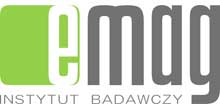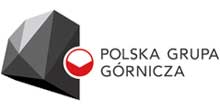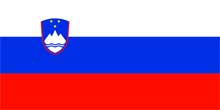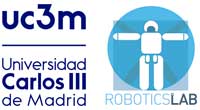Project Consortium

The research work will be carried out by a well balanced, interdisciplinary consortium. This will guarantee the necessary balance between the theoretical and the practical aspects of the work, and between the essential elements of pure research and the requirements of the rescue community and coal producers. The consortium, comprising organisations from five member states, includes four research institutions (DMT, EMAG, GIG and KOMAG), some of which also provide consultancy and act as equipment manufacturers, two coal producers (Premogovnik Velenje and Polska Grupa Górnicza) which also have full-time rescue teams, a civil engineering company specialising in underground work (Geocontrol), and three universities (University of Exeter, Silesian University of Technology and Universidad Carlos III de Madrid).
To achieve its aim, this project requires expertise in several quite specialised disciplines, several of which can be provided by only one or two of the consortium members and, in some cases, by only a few research organisations worldwide. As such, the project demonstrates a good degree of essential high-level collaboration with the expectation that it will achieve a result that would not be possible for any single company or small consortium.
At the task level, cutting edge research into some of the more specialised areas will be achieved by involving a smaller number of key organisations, albeit the ones that have built up and demonstrated the necessary specialised skills and expertise. In such cases, these core teams will be supported by contributions from other partners to ensure compatibility with equipment being developed in other associated tasks, and to ensure that it meets the needs of the rescue community.
The project is coordinated by the University of Exeter.
University of Exeter


The University of Exeter combines world class research with excellent student satisfaction at its campuses in Exeter and Cornwall. It is a member of the Russell Group of the UK’s leading research-intensive universities. Formed in 1955, the University has 21,273 students from more than 130 different countries.
DMT GmbH & Co. KG


DMT GmbH & Co. KG is an independent engineering and consulting company, active all around the world. The firm’s activities focus on natural resources exploration, mining and coke-making technology, geotechnics for construction and infrastructure projects, safety in buildings, and product testing and measurement instrumentation in industrial settings.
Instytut Technik Innowacyjnych (EMAG)


Instytut Technik Innowacyjnych EMAG (the Institute of Innovative Technologies EMAG), is a research and development institute, with activities ranging from hazard monitoring and safety systems, automation systems and intrinsically safe equipment, to mobile inspection platforms and informatics.
Geocontrol SA


Geocontrol is a civil engineering company established in 1982, independent of any construction companies, manufacturers or equipment suppliers and financial institution. Initially specialising in rock mechanics, since 1987 the company has beens orientated towards project design and site supervision of tunnels as well as geotechnical applications, both in the civil engineering and mining sectors.
Głowny Instytut Górnictwa (GIG), the Central Mining Institute


The Central Mining Institute (Główny Instytut Górnictwa – GIG) is a major Polish research institution. Driven by technical and human potential, its extensive research capabilities enable it to appropriately respond to the needs of the mineral-mining industry, as well as other sectors of the economy. The Institute is committed to exerting a positive impact on the relationship between the industry, its people, and the natural environment.
Instytut Techniki Górniczej (KOMAG), the Institute of Mining Technology


The mission of the KOMAG, Instytut Techniki Górniczej, the Institute of Mining Technology, located in Gliwice, Poland, includes a creation and commercialization of innovative solutions in the scope of mechanical systems, mechatronic systems, environmental protection, control of hazards, work safety and safety of product use.
Polska Grupa Górnicza, the Polish Mining Group (PGG)


Polska Grupa Górnicza (PGG), the Polish Mining Group, was created from the former Kompania Węglowa SA company. At present, PGG has three integrated collieries based on nine member mining facilities and two independent facilities. Each mine has its own rescue team. PGG is the European Union’s largest mining company, employing around 32,000 staff. The current staff has many years experience in the area of international scientific projects, such as PROSAFECOAL, MONSUPPORT and STAMS.
Premogovnik Velenje d.d.


The Velenje Coal Mine (Premogovnik Velenje d.d) operates the largest Slovenian coal deposits and one of the thickest known coal layers in the world. 165 metres thick, its lignite layers have enabled production of over 220 million tonnes of lignite so far. Piled on wagons, it would make up a train that could encircle the Earth twice.
Politechnika Śląska, Silesian University of Technology (SUT)


The Silesian University of Technology (SUT) was established in 1945 as the scientific and teaching centre of Upper Silesia, the most industrialized region in Poland and one of the most in Europe. It is the oldest technical university in the region and one of the largest nationwide.
Universidad Carlos III de Madrid (UC3M)


The University Carlos III of Madrid (UC3M) was founded in 1989 as a public university. From the outset it was intended to be an innovative, efficient, public university providing teaching of the highest quality and focused primarily on research. Today, with over 1,700 employees and 18,000 students, UC3M aims to contribute to the improvement of society through teaching of the highest quality and cutting edge research in line with stringent international guidelines.
